Religion: Rabbis
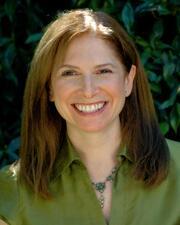
Naomi Levy
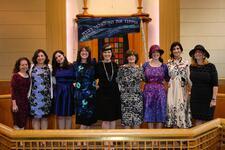
Yeshivat Maharat
Founded by Rabba Sara Hurwitz and Rabbi Avi Weiss, Yeshivat Maharat is the first Orthodox rabbinical school to ordain women. Building upon expanding education and ritual roles for Orthodox women in America that began in the late twentieth century, themselves outgrowths of American feminism, as of 2021 Yeshivat Maharat had graduated over forty women who powerfully impact Orthodox and wider Jewish communities all over the world.
Maimonides
Maimonides, referred to by the acronym Rambam, was a medieval Sephardic Jewish sage who studied medicine and practiced as a physician throughout his lifetime. His legal and philosophical writings made him one of the greatest and most widely read medieval Jewish philosophers.
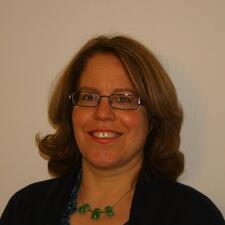
Dalia Marx
Midrash and Aggadah: Introduction and Sources

Avis Miller
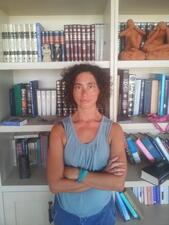
Haviva Ner-David
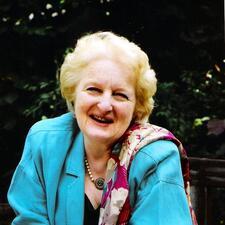
Julia Neuberger
Rabbi Ben-Zion Meir Hai Ouziel
Rabbi Ben-Zion Hai Ouziel was the Sephardic chief rabbi of Israel. Ouziel believed women could vote and be elected, serve as judges, use birth control for health reasons, and inherit property. He proposed a marriage formula that would prevent women from becoming agunot (“chained”).
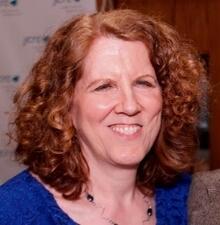
Barbara Penzner
Post-Biblical and Rabbinic Women
IIn antiquity, the treatment of women drew from patriarchal biblical traditions. Despite a few notable exceptions, women had minimal legal rights but were active participants in alternative Jewish sects and could hold office. As rabbinic material was codified, control over women increased, although the literature was not exclusively restrictive towards women.
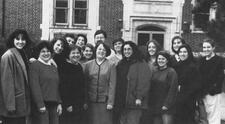
Sally Jane Priesand
On June 3, 1972, when Cincinnati’s Hebrew Union College-Jewish Institute of Religion ordained Sally Jane Priesand rabbi, she became the first woman in America to become a rabbi and the first in the world ordained by a rabbinical seminary.

Rabbis in the United States
Since 1972, when Sally Priesand became the first woman in the world ordained by a rabbinical seminary, hundreds of women have become rabbis in the Reform, Reconstructionist, and Conservative movements. In recent years, womenhave also entered the Orthodox rabbinate, using a variety of titles, including rabbi.
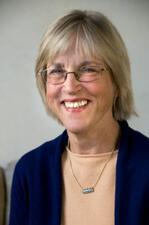
Rachel Cowan
From New York to Israel, Rabbi Rachel Cowan had a hand in developing many aspects of Jewish life during the second half of the twentieth century. She was a pioneer in pushing for inclusivity in Jewish spaces and went to great efforts to make Judaism more accessible to those unfamiliar to it.
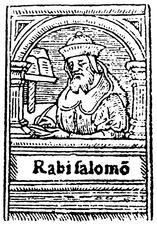
Rashi
The medieval commentator Rashi, through his commentary and halakhic works, was an advocate for improving the status of women, introducing innovative exegesis to support his views. His followers, the Tosafists, would continue to innovate and support Jewish women.

Graduating Rabbis, the Class of 2017
Back Row: Leiah Moser, Birgit Elke Klein, Diane Sarah Tracht, Kami Knapp, Michael Ethan Pollack, Hannah Michelle Spiro, Rayna Ilyza Grossman
Front Row: Marley Anne Weiner, Jamie Sara Serber, Ariel Cherly L. Tarash, Julianne Denise Benioff, Wendy Georgette Kennebrae, Alexander R. Weissman, Mimi Polin Ferraro
Reconstructionist Judaism in the United States
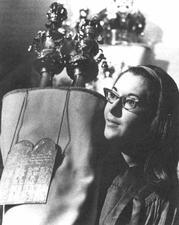
Reform Judaism in the United States

Elli Tikvah Sarah
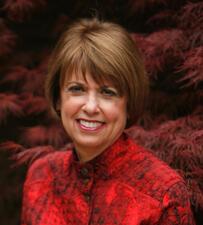
Sandy Sasso
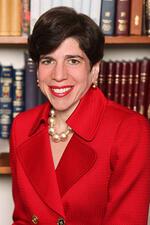
Julie Schonfeld

Julie Schwartz

Tanya Segal
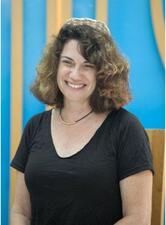
Kinneret Shiryon
Benjamin Aron Slonik
Benjamin Aron Slonik, a Polish rabbi and student of the Maharshal and Rema, was notable for his independent approach to halakha. His rulings often went against his colleagues, including on women’s halakhot.
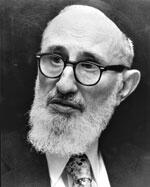
Soloveitchik, Rabbi Joseph Dov
Joseph Dov Soloveitchik shaped Jewish practice and public opinion through the era of second-wave feminism. Despite his sometimes progressive actions, Soloveitchik maintained that women and men had separate religious and familial roles. These positions from the leader of the Modern Orthodox community cemented resistance to Orthodox feminists’ demands to increase their participation in Jewish rituals.


